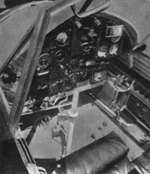PZL.23 Karaś
| Country | Poland |
| Manufacturer | Państwowe Zakłady Lotnicze |
| Primary Role | Light Bomber |
| Maiden Flight | 1 April 1934 |
Contributor: C. Peter Chen
ww2dbaseThe all-metal PZL.23 Karaś ("Crucian Carp") light bombers were originally designed by Stanisław Prauss to replace older models employed by the Polish Air Force. The third prototype that flew in 1935, with a raised pilot's seat and lowered engines for better visibility, was accepted and entered production. The first variants, PZL.23A, were fitted with Bristol Pegasus IIM2 radial engines, but these engines soon proved to be unreliable. The production quickly shifted to using Pegasus VIII engines. 40 PZL.23A aircraft were built in 1936 and 210 PZL.23B aircraft were built between late 1936 and Feb 1938. An additional number was produced for export to Bulgaria with Gnome-Rhone 14N-01 engines because the Bristol engines were licensed for use in Poland only; that variant was dubbed PZL.43. Out of the 250 available to the Polish air force by the end of Aug 1939, 23 were lost in accidents and 110 were held in reserve or used by training squadron, making 117 available for combat squadrons when the European War began. The first combat mission for this design was on 2 Sep 1939 when a PZL.23B bomber of the 21st Squadron bombed a factory in Ohlau; it was also the first bombing attack on German territory. On 3 Sep, PZL.23 bombers attacked German columns, briefly disrupting German movement, but ultimately they were intercepted by German fighters and shot down easily due to low speed and lack of armor. At the end of the Polish campaign, 67 were destroyed in combat and about 60 were lost to other reasons. At least 21 PZL.23 bombers were withdrawn to Romania as the Polish retreated through that country; 19 of them were kept by the Romanian air force, and were used against Russia after the launch of Operation Barbarossa.
ww2dbaseSource: Wikipedia.
Last Major Revision: Jun 2007
SPECIFICATIONS
PZL.23A
| Machinery | One Bristol Pegasus IIM2 9-cylinder radial engine rated at 670hp, license-built by PZL |
| Armament | 1x7.92mm nose PWU wz.33 machine gun, 1x7.92mm upper station Vickers F machine gun, 1x7.92mm underbelly Vickers F machine gun, 700kg of bombs |
| Crew | 3 |
| Span | 13.95 m |
| Length | 9.68 m |
| Height | 3.30 m |
| Wing Area | 26.80 m² |
| Weight, Empty | 1,928 kg |
| Weight, Loaded | 2,813 kg |
| Weight, Maximum | 3,428 kg |
| Speed, Maximum | 304 km/h |
| Speed, Cruising | 240 km/h |
| Rate of Climb | 6.50 m/s |
| Service Ceiling | 7,300 m |
| Range, Normal | 1,260 km |
Photographs
 |  |  |  |
Please consider supporting us on Patreon. Even $1 per month will go a long way! Thank you. Please help us spread the word: Stay updated with WW2DB: |
- » US Government Plans to Purge WW2 Information (17 Mar 2025)
- » WW2DB's 20th Anniversary (29 Dec 2024)
- » Wreck of USS Edsall Found (14 Nov 2024)
- » See all news
- » 1,167 biographies
- » 337 events
- » 44,601 timeline entries
- » 1,243 ships
- » 350 aircraft models
- » 207 vehicle models
- » 376 weapon models
- » 123 historical documents
- » 261 facilities
- » 470 book reviews
- » 28,511 photos
- » 367 maps
James Forrestal, Secretary of the Navy, 23 Feb 1945
Please consider supporting us on Patreon. Even $1 a month will go a long way. Thank you!
Or, please support us by purchasing some WW2DB merchandise at TeeSpring, Thank you!